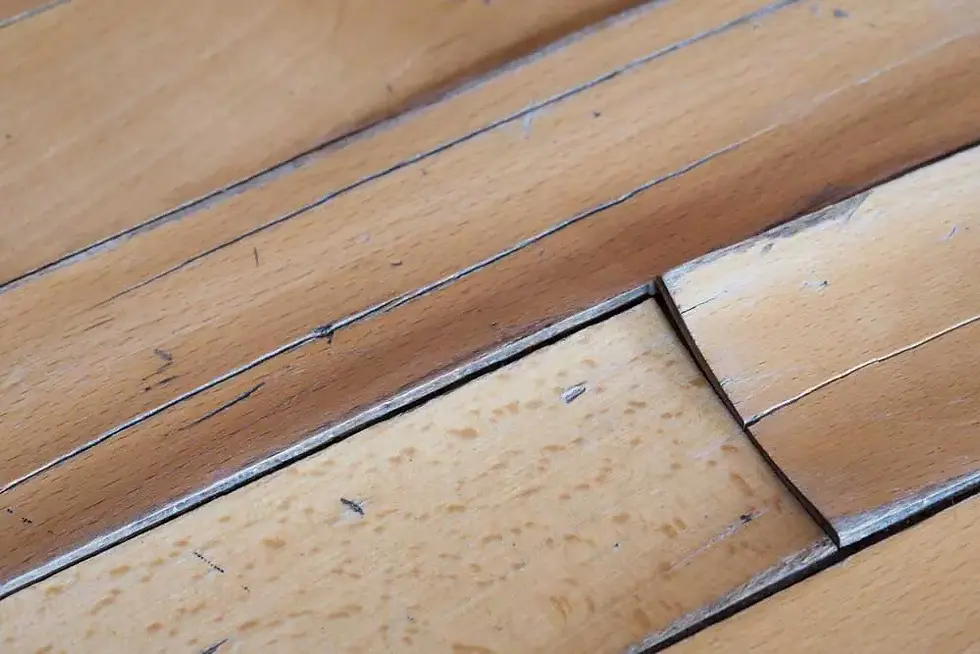Oil-Based vs. Water-Based Finishes
- Heritage Hardwood Floor Co
- Jun 23, 2025
- 2 min read
Updated: Jun 27, 2025
When it comes to finishing hardwood floors, the oil-based vs. water-based debate is the classic Coke vs. Pepsi of the flooring world. Each has its loyal fans, its pros and cons, and its perfect scenarios. So how do you know which one’s right for your home? Let’s break it down—
The Basics: What’s the Difference?
Oil-based polyurethane finishes have been around forever. They’re known for their rich, amber hue and serious durability. Water-based polyurethanes, on the other hand, are the new(ish) kids on the block—lighter in color, lower in odor, and faster to cure/dry.

Looks: Warm Glow vs. Clear & Crisp
Oil-Based: Think golden, honey-toned warmth. Oil-based finishes deepen the natural wood color and continue to amber over time, giving floors that classic “aged like fine wine” look.
Water-Based: These go on clear and stay clear. Perfect for homeowners who want to preserve the natural color of lighter woods like white oak.
Verdict: Want a rich, amber tone? Go oil. Want a modern, clean look? Water’s your friend.
Dry/Curing Time & Odor:
Oil-Based: Can take 8-24 hours to dry between coats, with strong fumes that can linger. It can also take up to 30 days to fully cure.
Water-Based: Dries fast—usually within 2-4 hours. Odor is mild and more manageable, especially if you have kids, pets, or a functioning nose. Takes 3-7 days to fully cure.
Verdict: Water-based wins if your space is occupied. If it’s vacant and there’s time to spare, you could choose oil.
Durability: Slow & Steady vs. Fast & Tough
Oil-Based: A solid option. Can be more forgiving when it comes to scratches and dents.
Water-Based: Very durable. There’s 2 component finishes that are made to be scratch resistant.
Verdict: Both offer durability. Other factors will help you decide based on your space and lifestyle.
Maintenance & Longevity
Oil-Based: Longer-lasting finish, but can yellow over time. Easier to spot-blend if you need a touch-up.
Water-Based: May need recoating a little sooner, but won’t alter the floor’s color. Spot repairs can be trickier to blend invisibly.
Verdict: Oil can last longer, but water gives you color consistency long-term.
Environmental Impact & VOCs (A.K.A. “The Air You Breathe”)
Oil-Based: Higher in VOCs (volatile organic compounds). Not great for indoor air quality.
Water-Based: Lower VOCs and better for the environment—and your lungs. The best option for an occupied home or if there’s kids and animals.
Verdict: Water-based is the eco-friendlier, nose-friendlier choice.
The Final Take
Choose oil-based if:
You want a warm, amber-toned finish.
You value maximum durability over fast dry time.
You don’t mind the smell or slower process.
Choose water-based if:
You prefer a clear, modern look.
You’re on a tight timeline or living in the house during the job.
You want something lower in odor and VOCs.
Still unsure? At Heritage Hardwood, we help homeowners weigh their options based on lifestyle, design goals, and how often their pets treat the floor like a racetrack. There is also sealers that can help achieve the look you’re looking for. Whatever you pick, we’ll make lasting and look beautiful.
Got questions or want to see samples in person? Reach out!




Comments